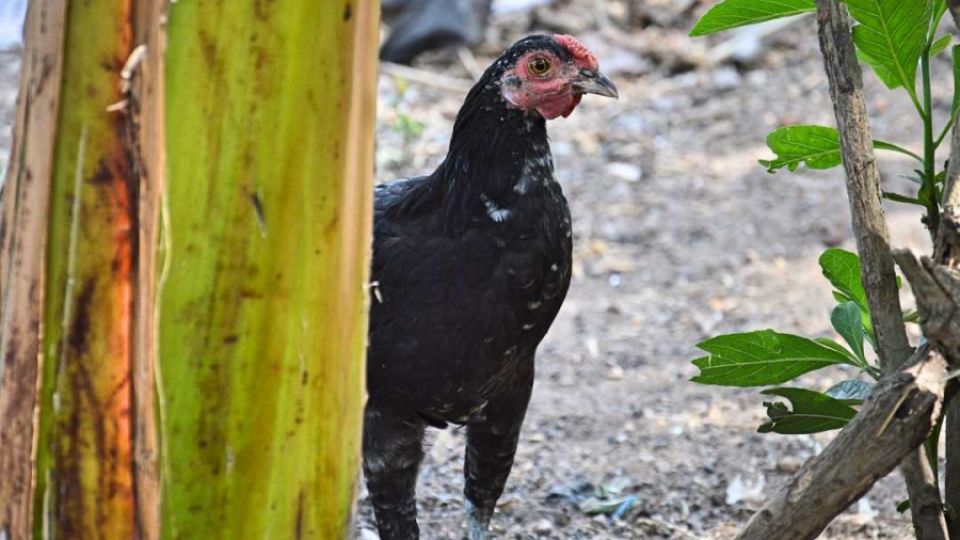At the Stockholm Convention, Arnika is presenting the results of recent analyses of chicken eggs from 29 countries concerning the presence of dioxins and dioxin-like substances. Free-range chicken eggs are an indicator of environmental pollution by persistent organic pollutants (POPs) and other toxic chemicals. Together with the world's ecologists, we call for stricter limits on the content of such substances in waste which is where they get introduced into the environment and, in many places, the diet of local people.
The latest research of Czech experts focused on samples from Ghana and Cameroon. At the Agbogbloshie scrapyard and waste disposal site in Ghana's capital Accra, they found enormous contamination with highly dangerous toxic substances. Much of the local e-waste comes from Europe or the United States. The study has already been reported by global media, such as The Guardian and NBC - Euronews. Last year, a movie on Agbogbloshie named 'Welcome to Sodom' was released.
Previously, Czech researchers have discovered dangerous pollution in Thailand, Kazakhstan, China, Indonesia, Serbia, Montenegro, and Bosnia and Herzegovina, followed by sampling in Armenia and Ukraine. Among the samples, there are also several eggs from the Czech Republic.
"We present the results of our 'egg reports' in the issue of the limitations on toxic substances in waste, which we are working on in cooperation with experts from IPEN, an international network of NGOs, here at the Geneva conference. That paper will shed new light on the contamination of the environment with dioxins and other POP-containing waste,” said Jindřich Petrlík, head of Arnika - Toxics and Waste Program comments from Geneva.
Dioxins - The old dirty guys are still with us
In total, Arnika and IPEN published a comparison of the results from 47 locations in 29 countries around the world between 2004 and 2018, as well as the content of toxic substances. Those substances enter very easily into living organisms, where they accumulate in fat tissues, and they are introduced into the human body through food.
In addition to the Stockholm Convention on Persistent Organic Pollutants, the Geneva Convention Center also features the Basel Convention. It regulates the cross-border movement of hazardous waste, which often ends up in developing countries that do not have sufficient technology to dispose of it.
“The conference started on Sunday with preparatory meetings of individual regions. Arnika is the lead coordinator for NGOs in the IPEN network for Central and Eastern Europe. In addition, we coordinate the work of this global network on waste or dioxins,” said Petrlík, who is participating in this week's meetings. For the participants, Arnika has published up-to-date summarizing leaflets together with previous studies from individual countries. "The material will be prepared for the delegates at the IPEN panel table," adds Petrlík.
List of all 29 countries included in the Arnika and the IPEN study:
Europe: Belgium, Belarus, Bosnia and Herzegovina, Czech Republic, Italy, Germany, Netherlands, Poland, Portugal, Serbia, United Kingdom, Ukraine
Asia: Armenia, China, Indonesia, Kazakhstan, Taiwan, Thailand, Turkey, Vietnam
Africa: Cameroon, Egypt, Ghana, South Africa, Tanzania
America: Brazil, Canada, Peru, Uruguay
Highest level of the world's most toxic chemicals found in African free-range eggs: European e-waste dumping and contributor | 24.04.2019
Industrial cities of Ukraine are polluted by heavy metals and dioxins, and new study of Czech experts discovers | 11/12/2018
Toxic heavy metals were found near people's houses in Northern Armenia. The local industry is blame, | 10/12/2018
Two New Studies Revealed POPs Pollution across Thailand | 23 November 2017
Polluted environment in Kazakhstan and seriously contaminates foodstuff threatens human health | 20.4.2017







